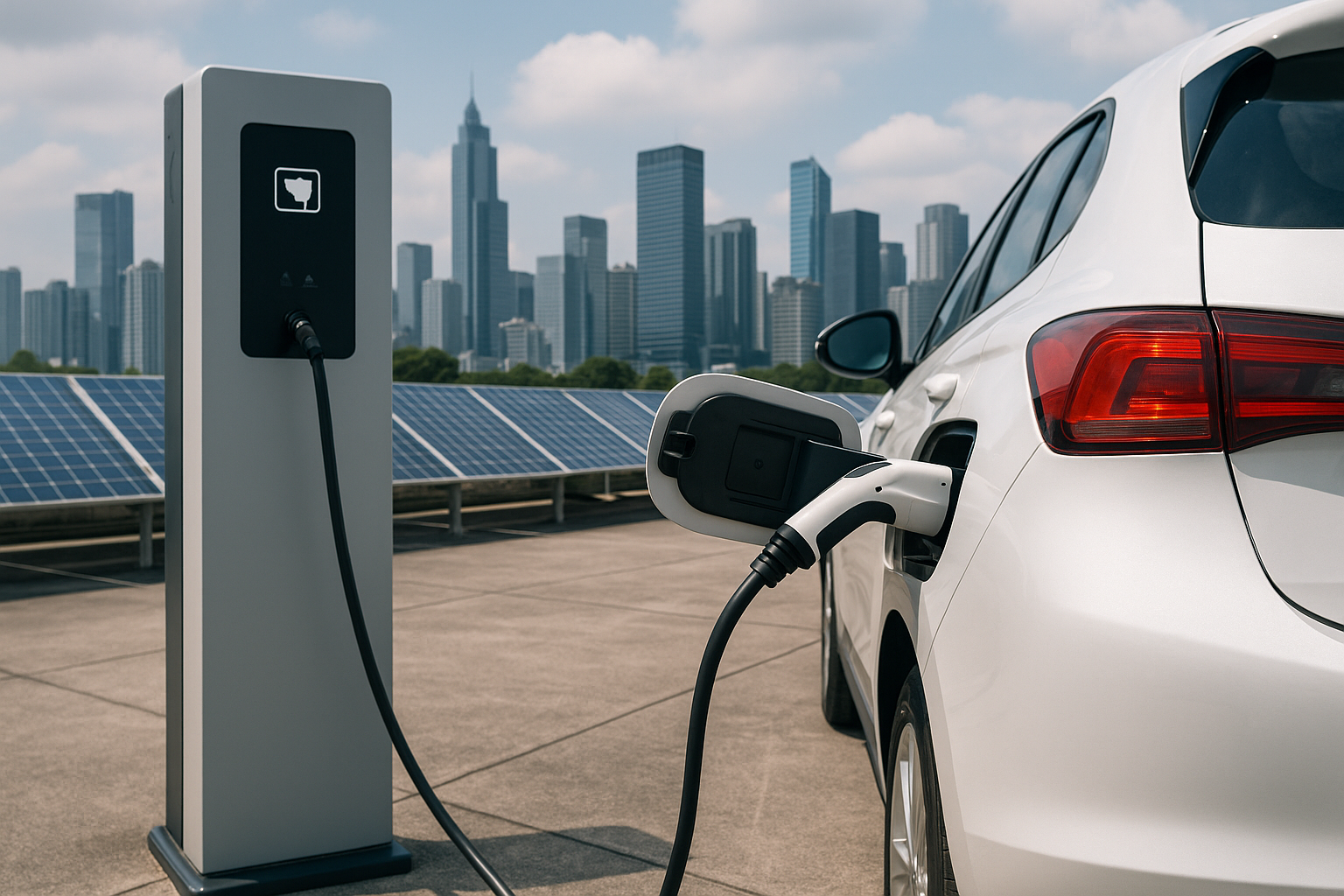AI and renewable energy merge to power future of sustainable urban mobility
The study proposes a decentralised smart EV-grid integration framework that distributes control intelligence across local nodes, such as charging stations, energy storage units, and renewable sources, rather than relying on a single central operator. This structure allows the system to self-adapt to real-time conditions, optimising both energy flow and grid stability.

A new study proposes an artificial intelligence–powered decentralised framework that could revolutionise sustainable transport and energy management in cities. The research, titled "Advancing Sustainable Urban Mobility: A Decentralised Framework for Smart EV-Grid Integration and Renewable Energy Optimisation," published in Urban Science, introduces a dynamic model that merges electric vehicle (EV) charging, renewable energy optimisation, and grid coordination into a single intelligent system.
The authors argue that as global cities move toward electrification and decarbonisation, traditional centralised grid control systems are becoming increasingly inefficient and vulnerable. Their proposed decentralised approach, built on federated learning (FL), multi-agent reinforcement learning (MARL), and model predictive control (MPC), demonstrates how localised decision-making and privacy-preserving coordination can balance energy demand, reduce emissions, and improve renewable energy utilisation across smart cities.
A new model for urban energy and mobility synergy
How can cities integrate large numbers of EVs into the power grid without overwhelming it? As the number of electric vehicles grows rapidly, uncontrolled charging patterns risk destabilising power systems, straining transformers, and increasing carbon-intensive electricity consumption during peak hours.
The study proposes a decentralised smart EV-grid integration framework that distributes control intelligence across local nodes, such as charging stations, energy storage units, and renewable sources, rather than relying on a single central operator. This structure allows the system to self-adapt to real-time conditions, optimising both energy flow and grid stability.
Under the hood, the framework uses federated learning (FL) to enable multiple stakeholders, utilities, EV operators, and urban grid managers, to collaborate on predictive energy modelling without sharing raw data. This privacy-preserving mechanism allows participants to collectively train machine learning models while maintaining data security and ownership.
The multi-agent reinforcement learning (MARL) component employs graph neural networks (GNNs) to manage interactions among distributed energy agents. Each agent learns to adjust charging rates, energy storage, and renewable energy distribution based on local and global grid conditions. This decentralised communication network ensures resilience against system failures and real-time adaptability during high-demand scenarios.
Finally, model predictive control (MPC) optimises long-term decision-making by forecasting future energy demands, renewable generation, and vehicle mobility patterns. By integrating MPC with FL and MARL-GNN, the framework achieves a robust balance between short-term responsiveness and long-term energy sustainability.
Performance gains: Lower emissions, higher efficiency, and greater grid reliability
The framework was validated through a simulation using the IEEE 39-bus urban grid test system combined with real-world EV mobility data. The results reveal significant performance improvements compared to traditional centralised grid control and uncoordinated charging systems.
The study reports a 40% reduction in carbon emissions, attributed to smarter scheduling that prioritises renewable energy sources during EV charging. By redistributing loads dynamically, the framework ensures that clean energy, particularly solar and wind, is consumed more efficiently, reducing reliance on fossil-fuel-based electricity.
Furthermore, grid reliability improved by 20%, thanks to the system's ability to minimise voltage fluctuations and prevent transformer overloads. The multi-agent approach enhances fault tolerance, allowing the network to maintain stable operation even if individual nodes or data streams fail.
Renewable energy utilisation increased by 25%, as predictive algorithms synchronised charging events with periods of high renewable generation. This optimisation not only supports carbon neutrality targets but also helps cities avoid renewable energy curtailment - a common issue when generation exceeds demand.
Importantly, the authors note that their framework is scalable and infrastructure-efficient. It does not require new grid hardware; rather, it leverages existing infrastructure by embedding AI-driven coordination into current systems. This makes it an immediately applicable solution for cities seeking low-cost pathways to energy and mobility sustainability.
Policy implications: Toward smart, equitable and decentralised urban futures
The study asserts that decentralisation can make smart mobility systems more equitable and resilient, particularly in regions where centralised grid control is prone to inefficiency or corruption.
By enabling local decision-making and reducing dependency on central data systems, the framework empowers municipalities, communities, and private energy providers to take part in energy coordination. It also facilitates peer-to-peer (P2P) energy trading, allowing EV owners and renewable producers to exchange surplus energy securely and transparently through blockchain-compatible smart contracts.
From a governance perspective, this decentralised approach aligns with emerging principles of "Energy Democracy", where citizens and small-scale energy producers play an active role in sustainable urban transformation. The system's integration of privacy-preserving AI mechanisms ensures that such participation does not compromise sensitive user or grid data.
The study stresses that while technology provides the tools, achieving long-term sustainability depends on policy alignment, regulatory flexibility, and investment in digital infrastructure. They call for governments to establish standardised frameworks for federated data sharing, incentive structures for renewable-based EV charging, and cybersecurity protocols for AI-enabled energy networks.
Decentralised intelligence can help cities mitigate urban heat island effects, reduce congestion around charging hubs, and promote balanced development between high-density and low-income districts. By combining transport electrification with renewable energy integration, the model supports the United Nations' Sustainable Development Goals (SDGs) on clean energy, sustainable cities, and climate action.
- FIRST PUBLISHED IN:
- Devdiscourse









